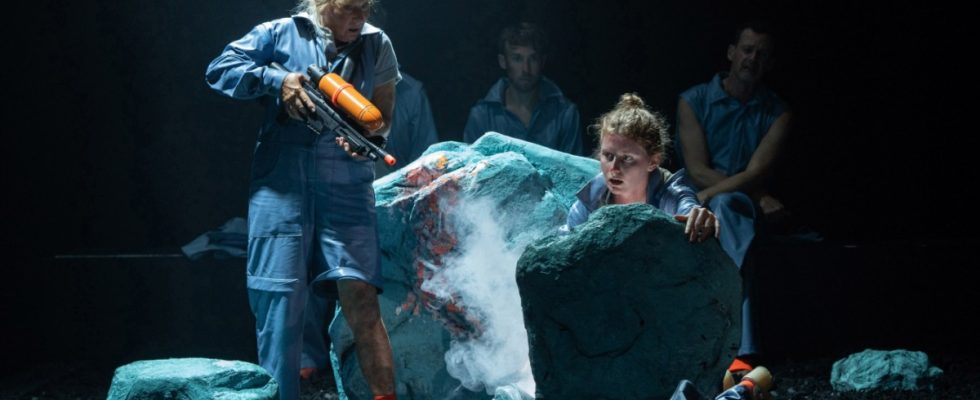Can theater change society? This is the question that concerns Volkstheater director Christian Stückl; he sometimes seems to struggle with the fact that the effectiveness of such major issues such as anti-Semitism and racism cannot be directly determined. This resonates with the presentation of the, in many parts, very political program of Munich’s largest theater festival, “Radikal Jung” on Friday morning. The festival is likely to reach a few, last year the capacity utilization was 96 percent.
Festival director Jens Hillje doesn’t hesitate, he believes that art, and especially the stage, can change society. Patience, precision, accuracy in speaking, listening and watching are necessary. But it is undisputed: “It is actually a festival in difficult times.” The desire to help shape this present can be seen in the program designed by the four-person jury with leader Hillje, Christine Wahl, C. Bernd Sucher and Florian Fischer.
From April 19th to 27th, 14 productions by young directors will be shown at the Volkstheater, nine from Germany, the rest from Austria, Denmark, Greece and the Netherlands. Hillje sums up the content with “resistance”. Aesthetically, the young directors also look for new forms and show “experimental desire”.
This search for form is probably particularly noticeable in the performance “The Cadela Força Trilogy” by Carolina Bianchi. The topic is femicide, i.e. violence against women. Bianchi crosses common boundaries by not simply speaking a “very good text”, but by giving herself knockout drops on stage and losing consciousness at some point during the performance (April 27). There’s no question that this evening has an impact. He probably won’t be the only one.
Carolina Bianchi’s performance is about violence against women. She takes knockout drops to deal with the topic on stage.
(Photo: Christophe Raynaud de Lage)
For Hillje, there are also productions from a “theater at the front”, which has nothing to do with a war front, but with a theater that is created under more difficult social and political conditions than in Munich or Berlin. The festival director includes the venues in Essen and Dortmund as well as in Cottbus and Magdeburg. In Essen, for example, the director and new artistic director Selen Kara is working on a new adaptation of the German canon, on a “post-post-migrant theater”. She staged a rewriting of Faust by the author Fatma Aydemir, “Doctor Mother Faust” (April 19). From Dortmund comes “Die Gerächten”, a story of resistance against racism, also set in a post-migrant society (April 22nd).
A production from Cottbus shows how hard – but elementary – theater practice can be. The investigative research collective worked on “Das Kraftwerk”. Corrective with, it is a piece from Lusatia about energy supply and structures, to which politicians reacted with massive criticism right up to the state parliament (April 23rd). The program also includes literary adaptations such as Jan Friedrich’s version of Kim de l’Horizon’s “Blood Book” (April 24) or Adrian Figueroa’s adaptation of Wolfgang Herrndorf’s “Work and Structure” (April 21/22). Ran Chai Bar-zvi’s adaptation of “The Big Booklet” by Ágota Kristóf (April 21) comes from the Volkstheater.
All in all, this year’s “Radikal Jung” focuses less on an examination of literary material than on concrete realities of life and their exaggeration. Discussing these – also in exchange with the young director and the master class as well as in the exciting supporting program – and creating spaces for this is what April will be about. “We need these spaces,” says Stückl and criticizes the fact that in financial crises, culture is always the first to save money – even in Munich. Equipped with the appropriate resources, “we help our theater change the world.”
Radical young festivalFriday, April 19th, to Saturday, April 27th, tickets available now, www.muenchner-volkstheater.de

